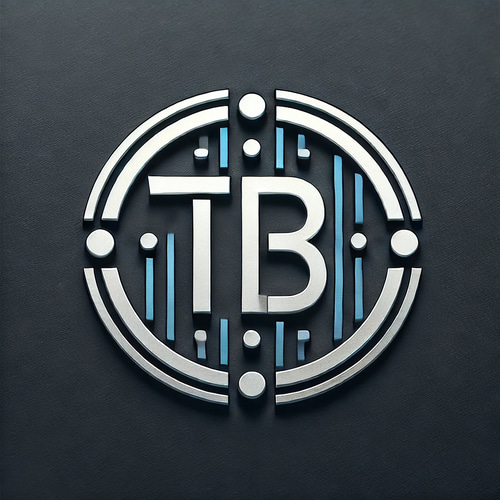Terms to Know
💡 Here are some key terms you'll come across often.
🔐 Wallets & Security
2FA (Two-Factor Authentication) – An additional layer of security requiring users to verify their identity with a second device or method.
Cold Wallet – Also known as a hardware wallet, this is a cryptocurrency wallet that is kept offline, making it highly secure against hacks.
Custodial Wallet – A crypto wallet where a third party, such as an exchange, holds the private keys for the user.
Hardware Wallet 🔐 – A physical device designed to store cryptocurrency securely offline. Examples include Ledger, Trezor, and Coldcard.
Hot Wallet – A cryptocurrency wallet that is connected to the internet, making it convenient for transactions but more vulnerable to hacks.
KYC (Know Your Customer) – A process required by many exchanges to verify user identity before allowing trades, helping comply with regulations.
Multisig (Multi-Signature Wallet) – A wallet that requires multiple private keys to authorize a transaction, increasing security.
Non-Custodial Wallet – A wallet where the user controls their private keys, giving them full ownership of their funds.
Paper Wallet – A method of storing cryptocurrency offline by writing down or printing the wallet’s private key and public key.
Passphrase (25th Word) – An optional extra security measure that adds another word to the seed phrase for enhanced wallet protection.
Phishing Attack 🎣 – A fraudulent attempt to obtain sensitive information, such as private keys or seed phrases, by pretending to be a trusted entity.
Private Key – A secret alphanumeric code that grants full control over a crypto wallet’s funds. Should never be shared.
Public Key – A cryptographic key that is shared with others to receive cryptocurrency transactions, like an account number.
Recovery Phrase – Another term for seed phrase, used to restore access to a cryptocurrency wallet.
Seed Phrase – A series of words generated by a cryptocurrency wallet that gives access to the wallet’s funds. It acts as a backup and should be kept secure.
Software Wallet – A digital application that stores cryptocurrency and allows transactions, typically classified as a hot wallet.
💱 Exchanges & Platforms
Centralized Exchange (CEX) – A cryptocurrency exchange operated by a central entity, requiring users to trust a third party for transactions. Examples include NDAX and Coinbase.
Decentralized Exchange (DEX) – A peer-to-peer crypto exchange that allows users to trade without a central authority, typically using smart contracts. (e.g., Uniswap, PancakeSwap)
Fiat On-Ramp – A service that allows users to buy cryptocurrency using traditional fiat money (e.g., USD, CAD) via credit cards, bank transfers, or PayPal.
🧱 Blockchain Architecture & Layers
Blockchain Layer – A conceptual level within blockchain architecture. Each layer handles different responsibilities, such as security, scalability, application functionality, or interoperability.
Layer 1 (Base Network) 🧱 – The foundational blockchain protocol that validates and finalizes transactions. Examples include Bitcoin, Ethereum, and Solana.
Layer 2 (Scaling Layer) ⚡ – A secondary framework built on top of Layer 1 to improve transaction speed and reduce fees. Examples include Lightning Network (Bitcoin) and Optimism or Arbitrum (Ethereum).
Layer 3 (Application Layer) 🧩 – Interfaces and decentralized apps (dApps) that users interact with. These may include wallets, games, or DeFi platforms.
Layer 4 (Interoperability Layer) 🔗 – The top layer that focuses on communication and compatibility between different blockchains. Projects here aim to enable seamless cross-chain transactions.
🧠 Key Concepts & Crypto Functionality
Altcoin – Any cryptocurrency that is not Bitcoin (e.g., Ethereum, Cardano, Solana).
Cryptography – A method of encrypting data to keep it secure and private.
Decentralization – The distribution of control across a network instead of a single central authority.
Fiat Currency – Government-issued money not backed by a physical commodity (gold, silver) but by trust in the issuing government.
Fungible – Something that’s interchangeable or identical to another item of the same type.
Ledger – A record of financial transactions, traditionally kept by banks but now decentralized through blockchain.
Mining – Producing new crypto, verifying transactions on a blockchain, and earning cryptocurrency as a reward for doing the work.
Peer-to-Peer (P2P) – A system where transactions occur directly between individuals without intermediaries like banks or payment processors.
Smart Contracts 📜 – Self-executing contracts with terms written in code, running on blockchains like Ethereum.
Stablecoin – A cryptocurrency pegged to a stable asset, like the US dollar.
Transaction Fee (Network Fee) – The fee paid to miners or validators when sending cryptocurrency, varying based on network congestion.
Wallet – A digital tool used to store, send, and receive cryptocurrencies.
✨ Empowering you to navigate the digital economy with confidence. ✨
Some links in this post are affiliate links, meaning I may earn a small commission at no extra cost to you. I only recommend products I use and trust.
Join the Trailblazer Crypto Community
© 2025. All rights reserved.


